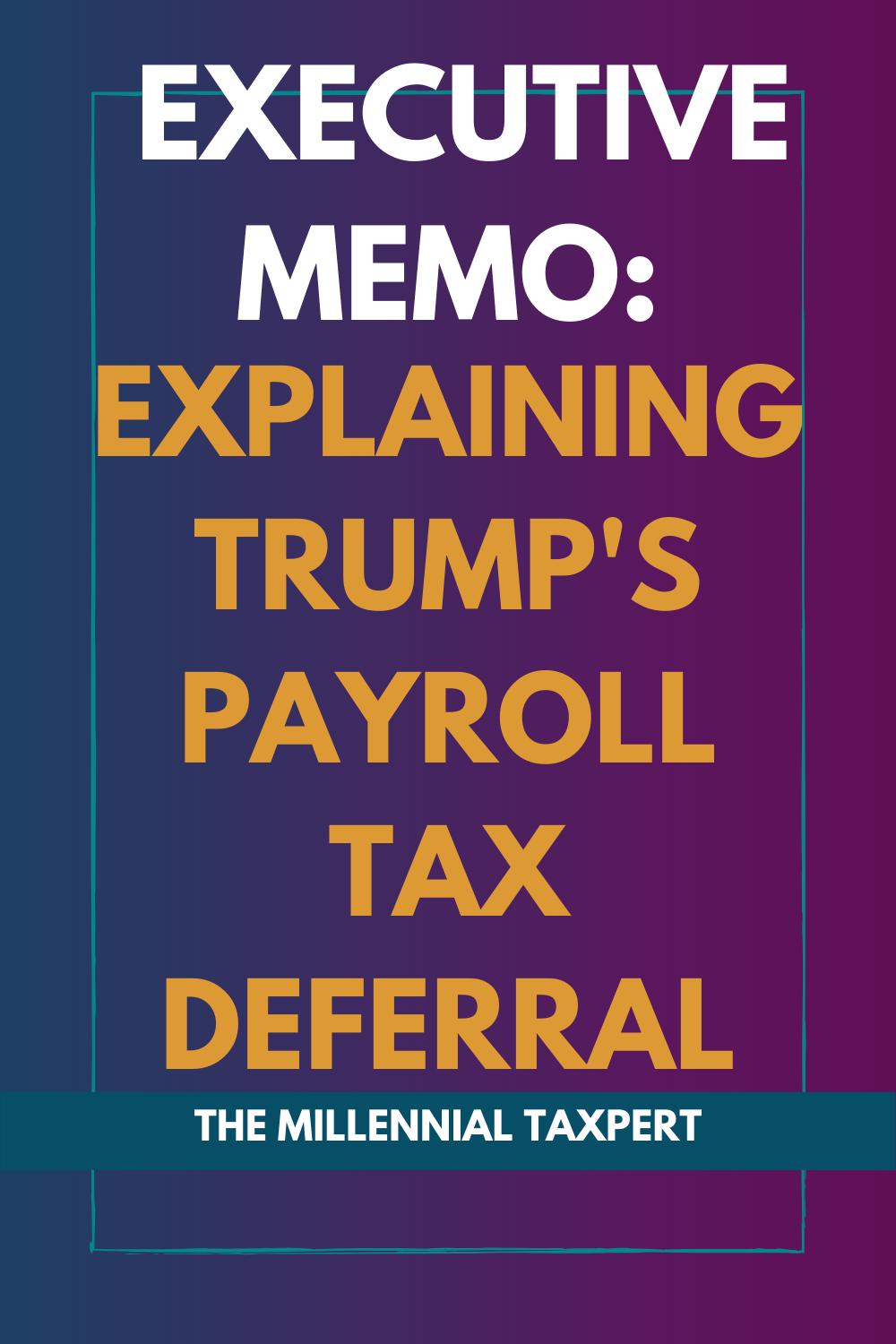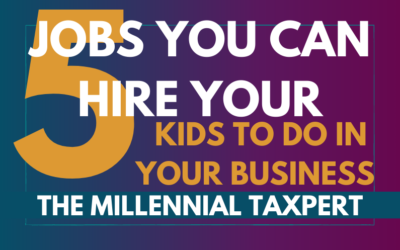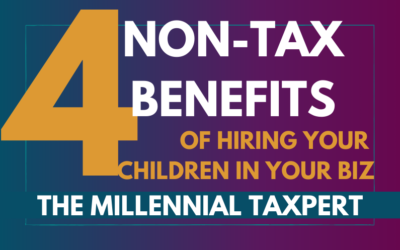Episode 30 | 18 Mins
Soo… About That Payroll Tax Deferral…
On August 8, 2020, President Trump signed an executive order and three executive memos related to Coronavirus Relief. One of the memos provided for a deferral of payroll taxes. In this episode, I discuss what I know so far about the payroll tax deferral and how it can affect you as an employee, employer, or self-employed taxpayer.
Listen
Watch
Read
(this transcript has been edited to improve readability)
So first of all, let’s talk about what payroll taxes are because some people may not really understand what this whole deferral was about and what this executive memo was about because they really don’t understand what payroll taxes are. So they’re really not sure what the deferral did. So when we talk about payroll taxes, we’re talking about Social Security and Medicare tax. specifically for the payroll deferral, we’re talking about Social Security tax, but typically your payroll tax is going to be both your social security and your Medicare tax together.
If you are an employee, you are paying 6.2% on your income and Social Security tax and 1.45% on your income in Medicare tax. For the most part, once you get to a certain income level for Social Security tax, you no longer have to pay it. And then once you get for it to a certain income level four Medicare tax, you have to pay more. If you are an employer, you are required to pay a 6.2% Social Security tax on your employee’s wages out of your own pocket, and then 1.45% of your employee’s wages to Medicare out of your own pocket. Again, once your employee gets to a certain threshold, you no longer have to pay Social Security tax on that. And then there is no threshold for Medicare tax for employers. It’s just 1.45% across the board. Sometimes employers do go ahead and over withhold on regular income tax to kind of make up for that additional Medicare tax that employees will have to pay if their income is above a certain level. But that’s strictly an employee tax that does not get split up between the employee and the employer.
So if you’re self-employed, then your payroll tax comes in the form of self-employment tax. So when you file your tax return, you will have self-employment tax be calculated, and self-employment tax comes up to be the 15.3%. So the 6.2% for the employee portion, the 6.2% for the employer portion, the 1.45% for the employee portion of Medicare, the 1.45% for the employer portion of Medicare. And then again, if your income is over those thresholds, then it changes right?
So that’s really what payroll tax is. From an employee standpoint, it’s your half of the social security and medicare plus more or less depending on how what your income level is. For the employer is your portion of your employees’ Social Security and Medicare tax that you have to pay out of pocket. And then for self-employed people, it is your self-employment tax because that’s exactly what self-employment tax is – your Social Security and Medicare tax.
So that’s really what Social Security tax or what your payroll tax is. Now, as far as the payroll tax deferral, what the payroll tax deferral did was instruct the US Treasury Department – really the IRS – to stop collecting the employee portion of the Social Security tax. Now, way, way, way, way, way back in the day, what it seems like now because COVID has been going on for so long, but way back when the CARES Act was first enacted, the employers got a deferral. So they’re already not paying their- or they’re already deferring the payroll taxes that they’ve been accruing, and the government gave them a deferral so that they can have income or cash that they can use to pay their bills and keep their employees employed. Okay? So the employers are already not paying into social security for their portion of the Social Security tax. And they’re not required to actually go ahead and pay that to the IRS until December 2021 and December 2022. So they still have over a year before they’re required to start making payments. With the executive memo that just came out, the employee is not required, or the US Treasury is not required to collect the Social Security tax from the employee portion through the rest of the year. And unless it’s forgiven, then that tax will have to be paid back eventually. Just like for employers, their tax has to be paid back eventually. The employees’ portion will have to be paid back if it’s not forgiven.
So, one thing that I’m still not 100% sure about, but I do have an inkling of how it goes, is who gets the benefit here, right? So I’m assuming that it goes to the employee. So if you are an employee, the idea is that the tax will not be withheld from your paycheck anymore. But it could also be a benefit to the employer because the employer will still withhold to pay the money from your paycheck and just not remit it to the IRS. So it could go either way. I’m leaning more towards it being a benefit for you, the employee, the taxpayer. So that way, it basically essentially gives you a 6.2% increase or 6.2% raise because you’re no longer having to pay that Social Security tax anymore and we’ve had these tax holidays in the past. However, in the past, they were actually tax cuts, and we didn’t have to pay it back. So with this- with the tax deferral, it is just a deferral which means that you will have to pay it back at some point unless it’s forgiven.
So let’s talk about the forgiveness. President Trump said that if he’s elected in November, if he’s reelected in November, he will forgive the taxes and the people who were able to benefit from the deferral because it only benefits people who… first of all, it’s only going to benefit employees. Because if you are self-employed, and you’re not making estimated payments, then you don’t pay your tax until April anyway. Now, if you’re self-employed, and you’re making estimated payments, which you should be, then it could affect you as well. But for the most part, it’s gonna affect employees as long as their income doesn’t exceed $4,000 every other week. So I think it comes out to like $104,000 or something like that is the maximum amount of income that you can earn, and still be able to get this payroll tax deferral. So what Trump said again, was, if he gets reelected in November, then anybody who was able to benefit from this deferral he would waive the taxes for. He would forgive them, and they wouldn’t have to pay it back. Sounds amazing. Here’s the problem. He doesn’t have the authority to do that. I’m not trying to say this in any political type of way or anything like that. All I’m stating are the facts and the math of it all. Okay? So he doesn’t have the authority to forgive taxes. He can defer them just like he did. However, he doesn’t have the authority to actually forgive the tax. only Congress can do that. And they can choose to do that or not do that whether or not he’s reelected in November. Okay. Now, Congress is pretty against these payroll tax cuts. So I’m not 100% sure that they will- or confident that they will forgive all the taxes, if any of them, okay.
So all that to say, if you are a beneficiary of this executive memo and are able to see an increase in your income because your employer is no longer withholding that Social Security tax, I would say you might want to hold on to that money and not spend it if you can, because if it doesn’t get forgiven, you’re going to have to pay it back at some point, probably on your tax return, your 2020 tax return. It’ll probably be calculated on there and added to your tax liability. Then you’d have that, you’d have if you’re taking unemployment compensation, or if you got unemployment compensation this year, that’s taxable. So if you haven’t had taxes come out of your unemployment, or you didn’t make estimated payments for the unemployment, your tax is going to increase because now you have an unemployment tax. And if you’re usually eligible for the earned income credit, but you were taking unemployment compensation, your earned income credit is not going to be as high. So all of those things together could be a disaster for you when it comes to actually filing your tax return.
Quick plug, if you are wondering how any of this will affect your specific tax situation, go ahead and book a call with me. The link will be down in the description of this video and it will be on the show notes web page, book a call with me so we can do a mid-year checkup. We can take a look at what’s going on and do a projection to see where you will be at the end of the year if things kind of stayed on the same trajectory. So you won’t be surprised when it comes to January March… January, February, March or April. Okay?
So going back to our regularly scheduled program. So again, if you are a recipient of this benefit, you might want to go ahead and save that money if you can, until you hear something saying that it’s actually been forgiven, and then you can spend it.
So if you’re an employer, don’t worry, don’t fret. Don’t stress yourself out. Because this is not final yet. And even if you’re an employee, don’t, you know, start high fiving and congratulating and celebrating too soon, because this is not final yet. There are some questions as to the legality of the order and the memos that Trump signed over the weekend. So this is probably going to be challenged in court before we get a decision on whether or not it can actually go through. So there is a little bit of breathing room that we have to try to figure out what’s going on before you got to start worrying about whether you should withhold or not withhold from your employees’ paychecks, or whether you start seeing that benefit in your paychecks if you’re an employee. So again, woosah, hold on a second, we will figure it out when we will get more information as this goes through the whole process to see whether or not it was actually something that could be done. And then if it could be done, to what extent because there might be a lower extent.
And then also, I wanted to talk to the people who are self-employed and who are not employees of their business. So if you’re self-employed, and you typically just file a Schedule C, or you just pay your self-employment tax at the end of the year, we’re not 100% sure exactly how this is going to work for you when you file your taxes. I assume that the IRS is going to figure out some kind of calculation to kind of put you on equal footing with people who were employed because the benefit should extend to people who are self-employed as well. And so there would kind of be like a discrepancy if self-employed people had to pay the full 15.3% of income for the whole year, and employees got their portion of their Social Security tax, completely forgiven. Now, again, this is just a deferral, and if it doesn’t ever get forgiven, then there’s nothing for the IRS to figure out because you’re all gonna be paying taxes on it at the same time when you file your tax return. But if it does get forgiven, I would assume that the IRS will come up with some kind of calculation to put self-employed people on equal footing with people who are able to get the benefit throughout the year.
So that’s all I have for you today. If you have any questions, please go ahead and drop them down in the comments below. Or send me an email at podcast@themillennialtaxpert.com if you’re listening to this on a podcasting platform. And I’ll be more than happy to answer any questions that you have in an upcoming episode. Next week we will definitely talk about LLCs if nothing else super pressing pops up, and I hope to see you all then. Talk to you later.


Kesha JonTae'
Host
Follow Me
Pin This Episode

Related Episodes
5 Jobs You Can Hire Your Kids to Do
Episode 28 | 20 Mins 5 Jobs You Can Hire Your Kids To Do When you hire your kids in your business, what they do can help justify the wages that you pay them. If you hire your child to sweep floors, you probably can’t justify paying them the same as you would if you...
4 Non-Tax Benefits of Hiring Your Children
Episode 27 | 13 Mins 4 Non-Tax Benefits of Hiring Your Kids Tax savings are great but they aren’t the only benefit you and your kids will get when you hire them in your business. In this episode, we discuss 4 non-tax benefits of hiring your kids in your...


